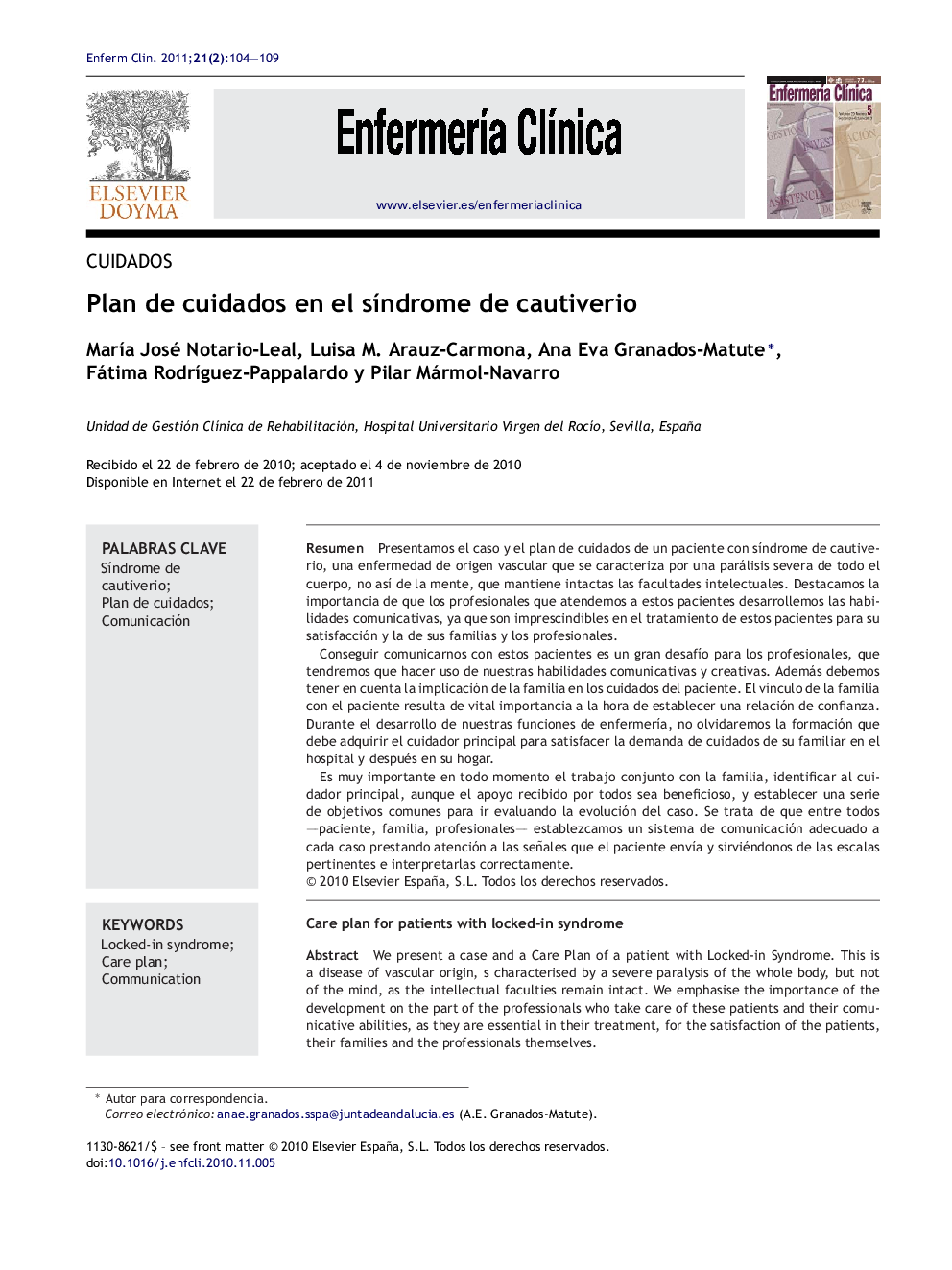| کد مقاله | کد نشریه | سال انتشار | مقاله انگلیسی | نسخه تمام متن |
|---|---|---|---|---|
| 2649065 | 1139201 | 2011 | 6 صفحه PDF | دانلود رایگان |

ResumenPresentamos el caso y el plan de cuidados de un paciente con síndrome de cautiverio, una enfermedad de origen vascular que se caracteriza por una parálisis severa de todo el cuerpo, no así de la mente, que mantiene intactas las facultades intelectuales. Destacamos la importancia de que los profesionales que atendemos a estos pacientes desarrollemos las habilidades comunicativas, ya que son imprescindibles en el tratamiento de estos pacientes para su satisfacción y la de sus familias y los profesionales.Conseguir comunicarnos con estos pacientes es un gran desafío para los profesionales, que tendremos que hacer uso de nuestras habilidades comunicativas y creativas. Además debemos tener en cuenta la implicación de la familia en los cuidados del paciente. El vínculo de la familia con el paciente resulta de vital importancia a la hora de establecer una relación de confianza. Durante el desarrollo de nuestras funciones de enfermería, no olvidaremos la formación que debe adquirir el cuidador principal para satisfacer la demanda de cuidados de su familiar en el hospital y después en su hogar.Es muy importante en todo momento el trabajo conjunto con la familia, identificar al cuidador principal, aunque el apoyo recibido por todos sea beneficioso, y establecer una serie de objetivos comunes para ir evaluando la evolución del caso. Se trata de que entre todos —paciente, familia, profesionales— establezcamos un sistema de comunicación adecuado a cada caso prestando atención a las señales que el paciente envía y sirviéndonos de las escalas pertinentes e interpretarlas correctamente.
We present a case and a Care Plan of a patient with Locked-in Syndrome. This is a disease of vascular origin, s characterised by a severe paralysis of the whole body, but not of the mind, as the intellectual faculties remain intact. We emphasise the importance of the development on the part of the professionals who take care of these patients and their comunicative abilities, as they are essential in their treatment, for the satisfaction of the patients, their families and the professionals themselves.Communicating with these patients is a major challenge for professionals, who have to make use of their creative and communicative skills, which are essential for treatment to the satisfaction of patients themselves, their families and the professionals. We must also take into account the family involvement in the patient care. The union between the family and the patient is of vital importance in establishing a trusting relationship. During the development of our nursing duties, we must not forget the training the main caregiver must acquire to satisfy the main needs of the relative in the hospital, and at home in the future.Working together with the family is very important at all times, identifying the primary caregiver —although the support received by all is beneficial— and setting a series of common objectives to evaluate the progress of the case. It is about partnership: patient, family and professionals, must all establish a communication system adapted to each case by paying attention to the signals that the patient sends, and making use of an appropriate scale to interpret them suitably.
Journal: Enfermería Clínica - Volume 21, Issue 2, March–April 2011, Pages 104–109